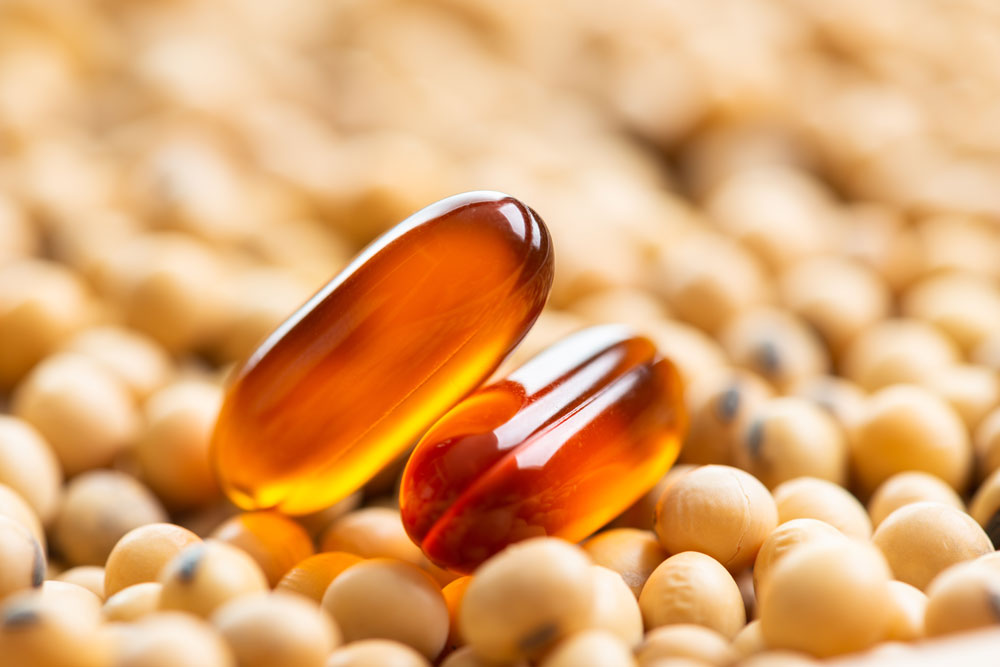LECITHIN MIT PHOSPHATIDYLCHOLIN
What is phosphatidylcholine (Lecithin)?
Phosphatidylcholine is a phosphorous containing lipid, representing a compound of fatty acids, glycerol, and choline. As chemical synonym the term lecithin is used (derived from ancient greek „lekithos“ – meaning egg yolk). It is a central structural component of cell membranes but also present in mucus of lung and intestine. Accordingly, it is produced naturally in the body.
In food industry lecithin describes the process by which phosphatidylcholine is extracted from plants, e.g. soy or eggs rich in this ingredient. Separation of by-products allows enrichment of phosphatidylcholine up to 95%.
Dr. Wolfgang Stremmel has found a form of refinement in the course of a study that not only includes gastric juice resistance but also makes release in the lower intestine possible.


Release in intestine vs. gastric acid resistance
For digestion, swallowed food is collected in the stomach and a chyme is formed. The added gastric acid helps proteins to be absorbed and in addition fights bacteria co-entering with food. After 3-4 hours the chyme is released to the small intestine where uptake into the body starts.
If one wants to offer the body additional food components, a breakdown in the acid milieu of the stomach needs to be prevented. Thus, many manufacturers use gastric acid resistant capsules or tablets. They are covered by a special topcoat preventing dissolution by gastric acid to ensure that they enter in intact form the small intestine for absorption.
For some food additives ,on top of gastric acid resistance, a later dissolution in the small intestine is desirable for prevention of degradation by pancreatic enzymes. For this purpose, a topcoat is provided to delay the attack by digestive enzymes. Dr. Stremmel succeeded in developing a refinement technique which allows both, gastric acid resistance and protection from pancreatic enzyme degradation, for release in lower parts of the small intestine.